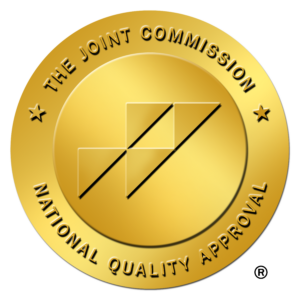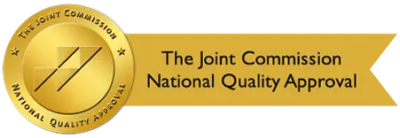Navigating Psychosis in the Digital Age: A Double-Edged Sword of Support and Challenge
Navigating Psychosis in the Digital Age: A Double-Edged Sword of Support and Challenge
The digital age has revolutionized how we live, work, and connect. The internet, social media, and other technologies have become seamlessly integrated into our daily routines, offering a wealth of information, communication channels, and social opportunities. However, for individuals living with psychosis—a mental health condition characterized by a disconnection from reality—this digital landscape can be both a source of immense support and a potential trigger for distress.
Understanding Psychosis
Psychosis is not a single disorder but a syndrome encompassing various symptoms.
These can include:
Hallucinations: False sensory experiences, such as hearing voices, seeing visions, or feeling sensations that are not there. These can be auditory, visual, olfactory, gustatory, or tactile.
Delusions: Fixed, false beliefs that are not based on reality, often persisting despite evidence to the contrary. These beliefs may involve paranoia (believing others are plotting against them), grandiosity (exaggerated sense of self-importance), or reference (believing that random events have personal significance).
Disorganized Thinking: Difficulty thinking clearly or expressing thoughts in a coherent way. This can manifest as jumbled speech, illogical connections, or difficulty following conversations.
Negative Symptoms: A decrease or loss of normal emotions and behaviors, such as flat affect (reduced emotional expression), alogia (poverty of speech), avolition (lack of motivation), anhedonia (inability to experience pleasure), and social withdrawal.
Cognitive Impairment: Difficulty with attention, memory, and executive functioning (e.g., planning, problem-solving). These cognitive challenges can significantly impact daily functioning and overall well-being.
According to the National Institute of Mental Health (NIMH), psychosis can be a symptom of several mental illnesses, including schizophrenia, bipolar disorder, and severe depression. It can also be triggered by substance abuse, certain medical conditions, and stressful life events. Research has indicated that psychosis often first appears in late adolescence or early adulthood, typically between the ages of 16 and 30.
The Digital Double-Edge: Benefits and Risks
The digital age offers a wealth of potential benefits for individuals with psychosis. Online support groups and forums provide a safe and anonymous space for connection and sharing coping strategies, potentially reducing the isolation often experienced with this condition. A study published in the journal Psychiatric Services found that online support groups can significantly reduce symptoms of depression and anxiety in individuals with psychosis.
The internet also provides easy access to information about psychosis, treatment options, and recovery resources. This empowers individuals to make informed decisions about their care and manage their condition more effectively. Reputable websites like the National Alliance on Mental Illness (NAMI) and the Early Psychosis Intervention Network offer reliable information and support.
In addition, digital tools like virtual reality therapy, mobile apps for symptom tracking, and online cognitive behavioral therapy (CBT) programs can supplement traditional treatment and provide additional support. A study published in Schizophrenia Bulletin found that virtual reality therapy can be effective in reducing paranoia and other symptoms of psychosis.
However, the digital world also poses risks for individuals with psychosis. The vast amount of information available online can be overwhelming and confusing, and misinformation or sensationalized content can exacerbate paranoia and delusional thinking. It can be difficult for individuals with psychosis to discern reliable information from misleading or false information.
Cyberbullying
Cyberbullying and stigma are also prevalent online and can be particularly harmful to individuals with psychosis. Negative online interactions can fuel feelings of paranoia and persecution, making it essential to curate a supportive online environment.
Excessive Screen Time
Excessive screen time, especially before bed, can disrupt sleep patterns due to the blue light emitted by electronic devices. Sleep deprivation is a known trigger for psychotic episodes and can worsen existing symptoms.
Exposure
Exposure to certain types of content, such as violent or disturbing images or videos, can trigger or worsen psychotic symptoms. Moreover, social media platforms, while providing connection, can also foster unrealistic comparisons and feelings of inadequacy, leading to increased social isolation and loneliness.
The Double-Edged Sword of Technology
Technology, particularly social media and online platforms, is a double-edged sword for individuals with psychosis.
Potential Benefits:
Connection and Community: Online support groups and forums provide a safe space for individuals with psychosis to connect with others who understand their experiences, share coping strategies, and combat feelings of isolation.
Access to Information: The internet offers a wealth of information on psychosis, treatment options, and recovery resources. This can empower individuals to make informed decisions about their care and manage their condition more effectively.
Therapeutic Tools: Digital tools such as virtual reality therapy, mobile apps for symptom tracking, and online cognitive behavioral therapy (CBT) programs can supplement traditional treatment and provide additional support.
Potential Challenges:
Information Overload and Misinformation: The vast amount of information available online can be overwhelming and confusing, and misinformation or sensationalized content can exacerbate paranoia and delusional thinking.
Cyberbullying and Stigma: Individuals with psychosis may be vulnerable to cyberbullying and stigma online, which can worsen symptoms and contribute to social isolation.
Triggering Content: Exposure to certain types of content, such as violent or disturbing images or videos, can trigger or exacerbate psychotic symptoms.
Social Comparison and Isolation: Social media platforms can foster unrealistic comparisons and feelings of inadequacy, leading to increased social isolation and loneliness.
Sleep Disruption: Excessive screen time and exposure to blue light can disrupt sleep patterns, which is a crucial factor in managing psychosis.
Navigating the Digital Landscape: Tips and Strategies
Given the potential benefits and risks of technology, it’s crucial for individuals with psychosis, their families, and healthcare providers to develop strategies for navigating the digital landscape safely and effectively.
Limit Screen Time: Establish clear boundaries on screen time, especially before bed, to prioritize healthy sleep habits.
Choose Reliable Sources: Seek information from reputable sources, such as mental health organizations and academic institutions, to avoid misinformation.
Curate Your Online Environment: Be mindful of the content consumed and the people interacted with online. Unfollow or block accounts that trigger negative emotions or promote harmful content.
Create a Supportive Online Community: Connect with online support groups or forums for individuals with psychosis. These platforms can offer a sense of belonging and valuable peer support.
Utilize Digital Tools Mindfully: Explore therapeutic apps and online resources designed to support individuals with psychosis under the guidance of a mental health professional.
Practice Digital Self-Care: Take breaks from technology, engage in offline activities, and connect with loved ones in person to maintain balance and well-being.
Seek Help if Needed: If you are experiencing distress or negative impacts from technology use, reach out to a mental health professional for support.


Verify Your Coverage Here
Additional Resources:
Early Psychosis Intervention (EPI) Network: nationalepinet.org
The National Institute of Mental Health (NIMH): nimh.nih.gov
If you need to talk to someone, don’t hesitate to call 988 or visit 988lifeline.org.
"*" indicates required fields







